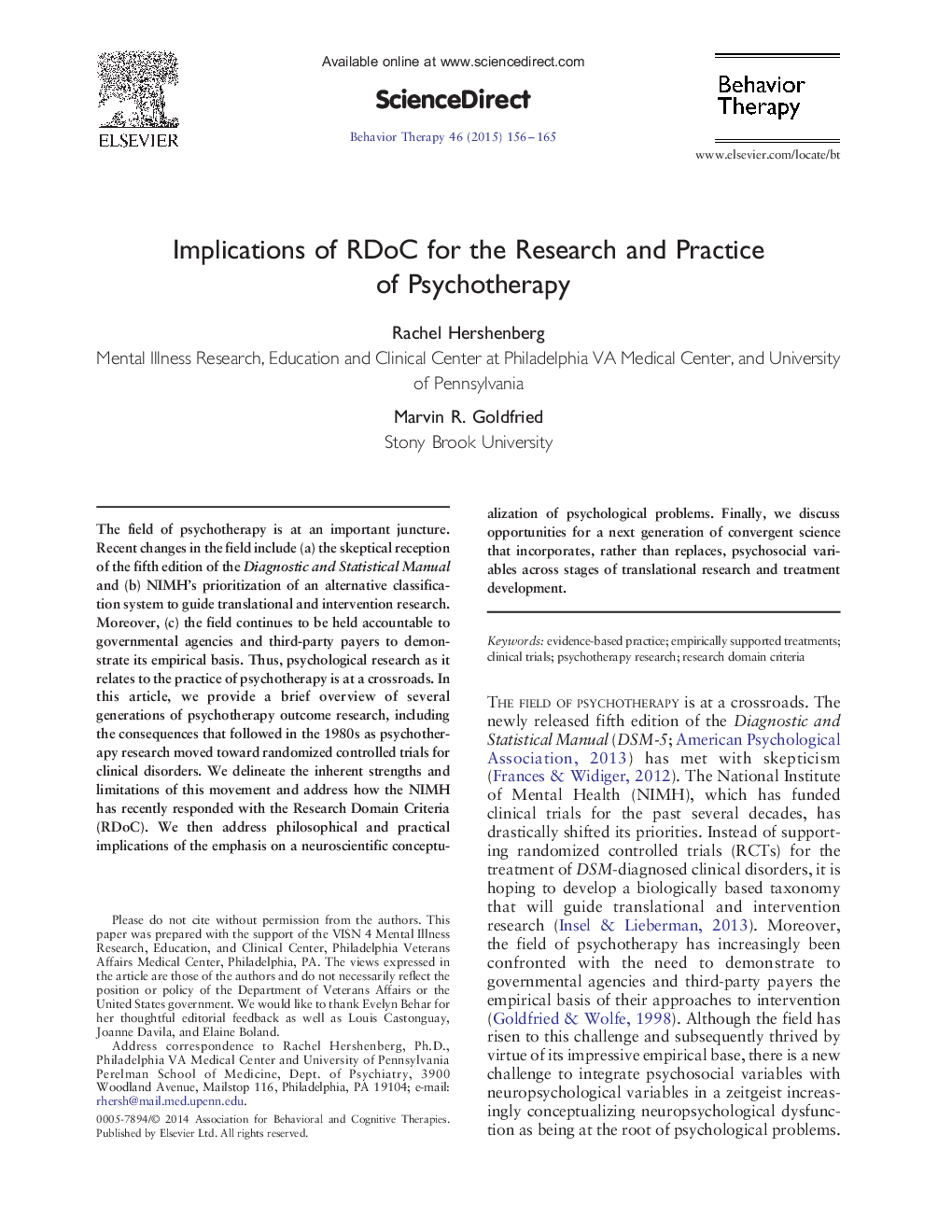| Article ID | Journal | Published Year | Pages | File Type |
|---|---|---|---|---|
| 901344 | Behavior Therapy | 2015 | 10 Pages |
•Provides an overview of psychotherapy outcome research, including strengths and limitations, since the 1980s•Addresses NIMH's response to limitations of research on treating DSM disorders with the Research Domain Criteria (RDoC)•Addresses philosophical and practical implications of the shift toward a neurobiologically favored RDoC•Discusses opportunities for a next generation of RDoC research that considers limitations of a medical model of psychology
The field of psychotherapy is at an important juncture. Recent changes in the field include (a) the skeptical reception of the fifth edition of the Diagnostic and Statistical Manual and (b) NIMH’s prioritization of an alternative classification system to guide translational and intervention research. Moreover, (c) the field continues to be held accountable to governmental agencies and third-party payers to demonstrate its empirical basis. Thus, psychological research as it relates to the practice of psychotherapy is at a crossroads. In this article, we provide a brief overview of several generations of psychotherapy outcome research, including the consequences that followed in the 1980s as psychotherapy research moved toward randomized controlled trials for clinical disorders. We delineate the inherent strengths and limitations of this movement and address how the NIMH has recently responded with the Research Domain Criteria (RDoC). We then address philosophical and practical implications of the emphasis on a neuroscientific conceptualization of psychological problems. Finally, we discuss opportunities for a next generation of convergent science that incorporates, rather than replaces, psychosocial variables across stages of translational research and treatment development.
